
Ever rising requirements on fuel economy and emissions can often result in trade-offs with other vehicle attributes.
In parallel, development and product cycles shorten, and modular approaches for propulsion systems demand the application of a powertrain in a variety of vehicles with different characteristics and attribute target sets.
Consequently, the task to enforce design decisions on powertrains and their control system are increasingly moving to an early phase in the development process, where often vehicle prototypes are not available.
A potential solution is to operate the powertrain or its subsystems on a full transient testbed within a virtual environment, while subjecting the overall system to a microscopic traffic simulation. Based on an example of a C-car class vehicle we will show an application case based on actual boundary conditions.
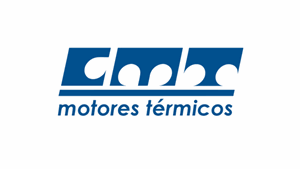
Engine exhaust aftertreatment systems are devices capable of reducing harmful exhaust emissions from internal combustion engine through chemical and physical processes. This seminar will present the most common after treatment systems being applied nowadays on both diesel and gasoline cars besides of approaching their functioning principles.

Altitude affects not only engine performance and engine raw emissions, but also the aftertreatment systems functioning as their boundary conditions change. This presentation encompasses the understanding of the effects on aftertreatment operation when working in altitude conditions as well as the identification of actives and passive strategies that can be applied to optimize their operation when submitted to these adverse circumstances.
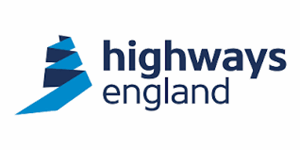
Sirish Parekh, Operations Costing Manager at Highways England delivered a guest lecture which covered how estimates should generally be managed: estimating principles, dashboards and potential pitfalls
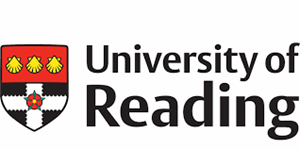
In low voltage networks, Energy Storage Systems (ESSs) play a significant role in increasing energy cost savings, peak reduction and energy efficiency whilst reinforcing the electrical network infrastructure. This talk will give an outline in optimal management system based on a different control strategies (Optimal Control and Model Predictive control) for the control of an ESS equipped with a network of electrified Rubber Tyre Gantry (RTG) cranes. The stochastic management system aims to improve the reliability and economic performance, for given ESS parameters, of a single crane or a network of cranes by taking into account the uncertainty in the RTGs electrical demand. A specific case study is presented using real operational data of the RTGs network in the Port of Felixstowe, UK, and the results of the stochastic control system is compared to a standard set-point controller. The results of the proposed control strategies indicate that the stochastic management system successfully increases the electric energy cost savings, the peak demand reductions and successfully outperforms a comparable set-point controller.


Modern vehicles tend to produce most of their emissions during transient operation ( e.g. accelerations, cold starts etc) and in this lecture, data will presented which illustrate the significant “spikes” of emissions and discusses the underlying causes. The data, when combined with GPS, engine data and dashcam footage, explains not only the reasons behind the emissions but also the air quality impact on the local environment e.g. downwind of speed bumps). Recent roadside, “chase” studies and cabin air vent results further helps to illustrate the importance of this topic at a time when the custodians of urban environments rush to implement clean air zones.

In principle the combustion engine is a highly sophisticated machine that transfers chemical into mechanical energy following the natural laws of science. At present, there is enormous pressure on this machine with regard to cleanliness and environmental friendliness. This discussion often neglects the fact that efficiency and emissions are related to the chemical properties of the used energy carrier and are often inversely proportional to each other.
The foreseeable future of automotive propulsion systems will be dominated by hybrid technology that is making best use of electrification and conventional powertrain elements including combustion engine.
We will see an increase of electrified vehicles tailored to specific customer demands and legal requirements. The majority of the next generation propulsion systems will continue to have an internal combustion engine as an integral part to ensure the optimum regarding cost, range, performance and cleanliness
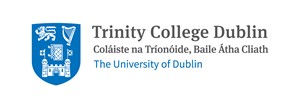
This talk will examine the relationships between transportation and climate change, focusing upon the pathways to reducing our emissions and over reliance on the private car. Within the next decade, the decade of action, our current mobility systems will need to transform in ways in which have never been seen before. Our usage of private vehicles, aviation and freight movements will all need to change. this talk will examine the pathways to achieve this change discussing the changes required in fuels, technologies and human behavior. The talk will draw on recent work conducted for the climate change Advisory Council in Ireland on pathways to zero emissions from transport.

All industries which consume non-renewable energy will be affected by changes designed to combat climate change in the coming decades. Amongst these, major changes will be effected in all aspects of the road transport sector, including fuels. This session will focus on how road transport fuels could change to enable the decarbonisation of road transport. The scene will be set with an outline of drivers for change, policy enablers, their deployment and the status quo. Light and heavy-duty scenarios to 2050 will be discussed along with some of the variables which will influence the outcomes. An overview of future fuel options will be given and some context of Shell’s activities to contribute to fuel decarbonisation will be outlined.

This seminar focused on the control of soot emissions in vehicles. The chemical nature of soot will be presented together with the removal technologies. Special attention will be paid to Diesel Particulate Filters and to the catalytic regeneration, discerning between noble metal catalysts and noble-metal-free alternative options.
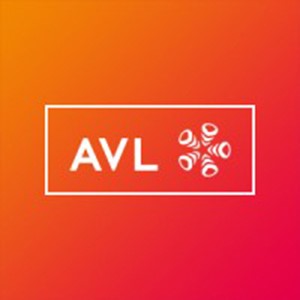
The rate of change within the automotive industry has accelerated beyond what most stakeholders could have imagined even 2, 3 or 4 years ago. The accelerated introduction of electrified powertrains, has brought to the fore the question of how the fuel or power to propel the vehicles is generated and the original source from which it comes. This presentation explores some of the challenges the automotive world must face, if it is to play a role in being part of the solution for a sustainable future.

Despite significant advances in energy efficiency, demand will inevitably increase as growing populations need more energy to support a decent quality of life. This will require a transition of the energy system from one that relies primarily on fossil fuels to one that increasingly uses sustainable sources of energy to achieve net-zero emissions. Regardless the pathways to get there, the structure of future energy system is becoming clear, it involves deep electrification, primarily renewable power, alongside increasingly low carbon, energy dense liquid and gaseous fuels. This session will focus on why low carbon fuels are becoming an integral part of a net zero future. An overview of future fuel options including Shell activities in developing next generation transport fuels will also be discussed

Exhaust Gas Recirculation (EGR) is employed in diesel engines to reduce engine-out NOx. Carbon-containing deposits form in the EGR systems of modern diesel engines as the particulate matter, hydrocarbons and other entrained species deposit from the exhaust gas flow as it cools and can lead to a number of problems including emissions and fuel consumption deterioration, poor performance and drivability, as well as breakdowns. An engine test method has been developed to enable the impact of fuel on deposits in the high-pressure EGR system to be studied. In the test method a 4-cylinder light-duty diesel engine of 1.6L displacement runs at conditions conducive to EGR deposit formation over 24 hours and the impact of fuels on deposit formation is determined through weighing of the EGR system components before and after the test. Initial tests comparing a B7 representative of European EN590 diesel fuel and a Fischer-Tropsch Gas-to-Liquid (GTL) gasoil fuel showed that 72% less deposit formed with GTL than with B7
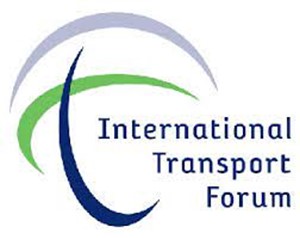
Since the start of 2020 the COVID pandemic has so dominated attention that analysis of almost all other public policy subjects has ceased. For transport, the pandemic has had huge impacts including massive reductions in traffic and, happily, reductions in crashes and fatalities. But despite these short term gains, road safety remains a central concern in transport policy. Each year over 1 million people die on roads around the world and traffic remains a greater killer of young men than COVID. While long run progress in reducing traffic fatalities has been made in many countries, this progress has recently stalled in several of them.
This guest lecture will describe how the toll from road collisions has changed and will look at the impact of COVID on the trends. It will examine how safety policy has evolved and will discuss the challenges in moving towards a road system free of deaths and injury. Examples and case studies from several Countries will illustrate the developments and challenges.
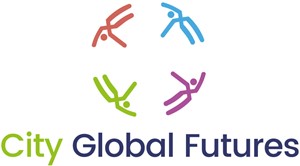
What will our cities look, feel and sound like in 10, 20, 50 years’ time? Where will we live, how will we connect with each other, what sort of jobs will we do?
Stephen Hilton has been helping city leaders to tackle these questions for many years, first as Director of Futures at Bristol City Council and more recently as the founder of City Global Futures (CGF). This talk will focus on Stephen’s (virtual) work between August 2020 and February 2021 with Bath and North East Somerset B&NES) council and local stakeholders. He helped them to develop a shared 2030 vision to renew the region’s future direction following disruption caused by the global pandemic and to respond to the council’s declared climate and ecological emergencies. The vision was built around four stories of the future which helped people to think about what they might need to do differently to achieve a net zero carbon 2030.

At Lunaz Design they are taking some of the most beautiful classic cars in history and making them fit for the 21st century by completing a full restoration, modernising key systems and fitting battery electric powertrains. The award-winning cars display fantastic attention to detail and retail for between £245,000 and £1M each.
In this lecture Jon will explain the philosophy behind the creation of the Lunaz Group of companies and describe in detail the process by which vehicles are remanufactured back to better than new standard. He will cover the special challenges imposed by the fitment of a battery electric powertrain and compare the environmental performance of the Lunaz products to brand new electric vehicles.

In order to meet its future renewable energy demand and become net-zero towards 2050, Europe is expected to import significant amounts of renewable energy in molecular form, e.g. as hydrogen. Also, seasonal renewable energy storage in form of hydrogen will be needed.
While direct use of electricity in battery-electric trucks is preferred due to the overall efficiency from local renewable production, it may look different when hydrogen will be imported as renewable energy carrier and for seasonal storage reasons. A comparison of long-haul trucks running on batteries vs. hydrogen will be presented considering an energy systems perspective.
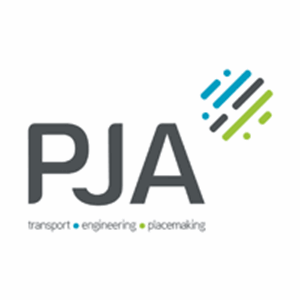
In response to the urgent needs of climate change, new thinking for the planning of net zero transport and placemaking solutions in new development and in existing places is required. These approaches require an understanding of development and spatial planning with strategies for minimising and eliminating operational CO2e emissions from local transport. AV Shuttles initially operating on dedicated space offering a new flexible form of public transport are likely to form part of a future transport solution for cities, towns and villages.
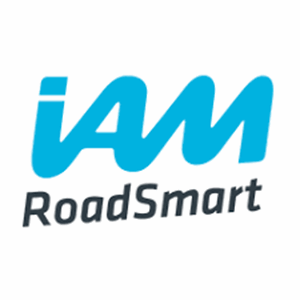
IAM RoadSmart Safety Culture’s aim is to study UK motorists’ driving safety attitudes and behaviour. This survey was first carried out in 2015 and repeated every year since allowing IAM RoadSmart to track any changes in attitudes and behaviour, drivers are asked a range of questions including their perceived threats to personal safety.

All lithium-ion batteries slowly degrade with time and use. Understanding how this degradation occurs and how to mitigate it is essential in increasing the lifetime of battery powered devices like electric vehicles. The state of health (SoH) of a lithium-ion battery is usually estimated from measuring the voltage, current and/or temperature of a battery subjected to a range of diagnostic tests. This talk will cover the different methods of battery SoH diagnostics, how they work and how SoH is commonly interpreted in controlled lab-based settings. However, the real world is not a lab! Many external factors such as temperature, charging duration, and user behaviour will influence the ability to estimate a batteries SoH and make accurate lifetime predictions. The influence of these external factors on the accuracy of SoH diagnostics will be explored with applications linking to electric vehicles. The talk will also highlight the importance of considering how lab research is applied in the field.

Sean Barrett is the author of “Deregulation and the Airline Business in Europe” and was a Member of the Senate (Upper House) of the Parliament of Ireland from 2011-2016, as well as a member of the National Economic and Social Council; Culleton Review of Industrial Policy; Brennan Review of Health Policy; and as a director of the Irish Tourist Board. Sean will be talking about the liberalisation of the air transport in Ireland in 1985 with updates to the present day. Ireland played a leading role in the liberalization of European aviation and experienced significant economic benefits due to increased passenger numbers, lower fares, and increased staff productivity. In 2019 two of Sean Barrett's former students were chief executives of airlines which carried 245 million passengers, Michael O'Leary at Ryanair with 149m passengers and Peter Bellew at easyjet with 96m passengers.
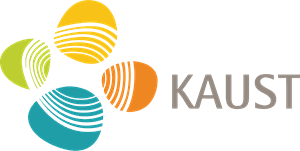
In this seminar, Prof. Dally discusses the widening gap between the aspirational targets of carbon neutrality by 2050, and reality on the ground. He looks at current impediments and constraints, and proposes measures to overcome them. In particular, he discusses the concept of integrated solutions, decarbonizing industry sectors and some of the cost-effective decarbonization technologies he has developed.
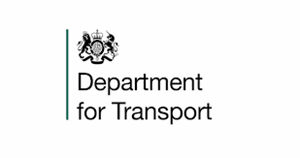
How do people want and need to travel? Which trips are really valuable? How are habits changing? These questions need answers because climate change, the coronavirus pandemic and changing work–life priorities have shaken up long-held assumptions. Hope for a brighter future lies in adapting transport to more human wants and needs. The discipline of behavioural science therefore has the potential to significantly improve the design of roads, railways, planes and pavements – as well as the ways in which we use them – but only when we embrace the messier reality of how people travel.
Pete will present insights from a new book co-authored with Rory Sutherland, published on November 18th 2021. Expect talk of electric cars, planes, tubes, maps, ticket machines, e-bikes, hybrid working and much more.
He welcomes a discussion about how social and behavioural scientists can put their best foot forward, to play an even more pivotal role in shaping the transport systems we all use.

Cost of heating & cooling an automotive cabin is very expensive for a Battery Electric Vehicle’s efficiency. Plus the current battery and electric drive units technologies have very limited window of operating temperature range for optimal energy efficiency & vehicle performance. Thermal energy management is key to ensuring that the range of an electric car is delivered robustly across all ambient conditions without compromising the customer experience of driving an electric car. In this lecture we will go through the challenges and opportunities of thermal energy management those electric vehicles present.
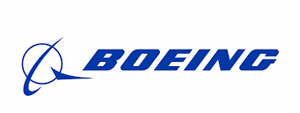
The National Academies report, Information Technology and the U.S. Workforce (2017), stated that over the coming 10 to 20 years, technology will affect almost every occupation resulting in a high percentage of workers that need re-skilling. Machine learning and artificial intelligence threaten to not only eliminate a larger number of jobs than will be re-created through innovation (Brynjolfsson, Mitchell, & Rock, 2018; Manyika et al., 2017; Levy, 2017), but that entire classes of professions will fall prey to machine learning. Changes in the skills and knowledge necessary for successful digital life are now impacting organization cultural and technical systems. This is not unanticipated, as researchers have long described the impending change: “The emergence of our contemporary networked society has brought disruptive changes, reshaping the nature of relationships and interactions and creating responsive, collaborative, and highly engaged culture” (Castells, 2000; Goodyear, 2014; Jones, 2015). These changes require rapid innovation from companies due to the need for a highly-educated “adaptive” workforce. This presents new opportunities for companies and universities to partner in research in order to measure the flow-quality of knowledge across sociotechnical networks. In a digital economy, knowledge creation (human and machine), communication and coordination largely occurs within dynamic knowledge networks (Pezeshki,2019)
In this presentation, we will cover learner usage pattern extracted from clickstream data within learner centered networks. Clickstream data is defined as a proxy for user behavior that not only records that a click was made by the user on an electronic object, but also captures the associated metadata, such as the system time when the click was made, the object on which the click event occurred, the dwell time on the clicked entity, and learner trajectory, NPL discussions and other navigational details. Clickstreams not only embody behavior, they are also a signal – a manifestation of learner intent. (Madhavan & Richey,2016).

Rami Alsaleh spent 5 years as the Digital Transformation Lead at Microsoft, helping large organizations and corporations to transform their business to become more agile, fast to market and cost effective. Rami will be talking about why digital transformation is important, the challenges, benefits and more importantly what we benefit as end users.

Commercial vehicle manufacturers are targeting ZEV as the end game technology for its segments. But this is paced by government investments, infrastructure and cost. Intermediate technologies “bridge technologies” are critical in enabling this jump into ZEV whilst managing the needs of the applications and users today. H2 is one the fuels of choice in Heavy duty commercial vehicle segment due to variety of benefits this provides. Cummins’s approach is to develop multiple H2 based powertrain technologies (Low emissions and Zero emissions) and has multiple developments in progress supported by UKRI.

Over time, engines have evolved towards a few certain forms, and increasingly these might be seen as having been the only way to do things. However, there have been myriad different types, employing configurations and technologies which might appear alien in the modern world, but which are increasingly fading from knowledge. This lecture discusses 12 such unusual engines, their mechanical complexities and idiosyncrasies, why they came about historically, and what need they served. Two modern ones are also discussed, illustrating that some people are still driven to innovate. The intention is both to inform and to invite the audience to think that there is always a different way, whether success is assured or not – which should, of course, serve as a warning...
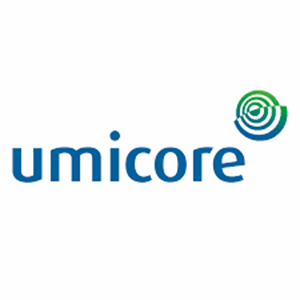
Water electrolysis technologies are considered a critical step for the implementation of green hydrogen and decarbonization of our society. Additionally, fuel cell-powered vehicles represent an industrial, sustainable and cleaner alternative for the automobile industry showing longer ranges, shorter refuelling times and higher energy density compared to battery-powdered electric vehicles. This presentation will show the most important technologies and critical challenges of materials development for the production and use of hydrogen.
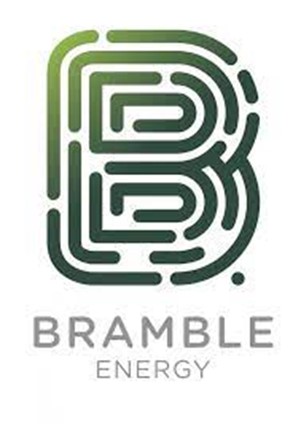
The lecture will cover fuel cell powertrain sizing, stack and system development, including design, analysis, system engineering and control.

Greenhouse gas emissions (GHG) and air quality (AQ) pollutants need to controlled and further reduced from transportation. European legislation is driving the reduction of both GHG and AQ emissions. Passenger cars are required to reduce CO2 emissions by 55%, compared to 2021, by 2030 and 100% by 2035. Heavy duty on road engines are required to reduce CO2 emissions by 15%, compared to 2020, by 2025 and 30% by 2030. In addition to reduction of CO2 from the tailpipe of the vehicle, Euro 7 will impose stricter air quality pollutant emissions and new pollutants are also expected to be introduced. Hence, new technology is being developed for transportation propulsion to reduce vehicle emissions. Ricardo will discuss legislation, fuels and propulsion technologies which may be deployed to meet Euro 7 and CO2 legislation in a sustainable manner. Technologies discussed will include alternative fuelled engines, batteries and fuel cells for propulsion.

Urban Carlson is Chief Scientist at Freevalve AB & CEO of Desert Ocean Renewable Fuels & Chemicals. In this lecture, Urban asks “What are the Desert Oceans and how can we use them?”. Urban’s answer: first fix we must fix the CO2 problem and then replace fossil fuels with renewable photo-fuels.

Prof. Merat will provide an overview of the work the Human Factors and Safety Group have been conducting on driver takeover of control in SAE Level 2 automated vehicles, using a motion-based driving simulator. In particular, she will focus on if/how drivers’ visual attention to the road ahead or other, non-driving related tasks, affects the timing and quality of this response.
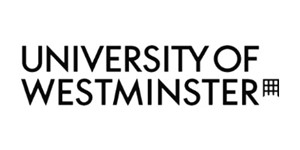
This talk focused on the postwar policy towards cycling, and how it moved from being invisible to being much more prominent, albeit often problematically. The talk compared different approaches to cycling provision, and also consider changing approaches to walking.

Data are the key to enabling integration and coordination across the city infrastructures and provides situational-aware decision-making capabilities for smart cities to fulfil the objective of servicing citizens.

Global energy consumption will likely continue to grow towards 2050, amid the challenges and uncertainties facing the global energy system. How is it related to climate change and the concept of net zero? Dr Yuan discuss this, explain how energy and net zero transition are considered within the UK, and how some of her research work in biofuel combustion supports this transition.

The talk would be mainly around the development of Fuel Cell Electric Vehicle, demonstrating rapid prototyping development and controls and software developed.
At the same time they would like to touch on some of the R&D we do and the different activities in our controls department.
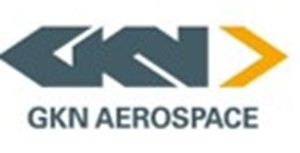
A view from industry into the opportunities and challenges with hydrogen fuel cell power for aerospace. A look back at aerospace’s previous experience, under-standing the state of play today and a view into the future of hydrogen fuel cells on aircraft.

The presentation describes some of the design and performance attributes of the KAUST narrow-throat prechamber for internal combustion engines. Conceptually this is designed to be retrofittable to existing heavy-duty diesel engines to allow them to operate efficiently on alternative fuels such as methanol and ethanol, as well as gasoline. Three main topics will be discussed, in order to explain how the different elements of the project fitted together: thermodynamic engine experiments, optical engine experiments (including a novel optically-accessed prechamber), and CFD analysis. It is hoped that from this a feeling can be gained for the power in which these three different disciplines can work together to improve engine technology and make it continue to be relevant as the world seeks to decarbonize.

David Cebon, PhD, FREng, FIMechE is a Professor of Mechanical Engineering in Cambridge University Engineering Department. He is the Director of the Centre for Sustainable Road Freight and the Cambridge Vehicle Dynamics Consortium. Professor Cebon has authored or co-authored many papers on dynamics, safety, manoeuvrability, energy consumption and decarbonisation of heavy vehicles. He is a founding member of the Hydrogen Science Coalition.

Dr Nai will be presenting an overview of the major subsystems and melting process of a metal powder additive manufacturing (AM) machine. He will discuss the advantages and challenges presented by AM in the context of the manufacturing of medical components and heat exchangers.
Received the BSc and Doctorate Degrees from the Department of Electronics and Electrical Engineering, Loughborough University in 1990 and 1994 respectively.
Joined Renishaw PLC in 1995 and is currently a Principal Engineer, been working in Metal Powder Additive Manufacturing since 2012.

Dr. Daniel V. McGehee is an internationally recognized vehicle safety researcher who is director of the Driving Safety Research Institute and National Advanced Driving Simulator and a professor in the department of Industrial and Systems Engineering, Emergency Medicine, Occupational and Environmental Health, and Public Policy. He has done advanced driver assistance and automated driving research and development for over 30 years.
He earned his PhD in human factors at the University of Leeds, in England.

An environmental engineer, Chartered Environmentalist, and former UNESCO Special Junior Envoy for Youth & the Environment, Georgia started her career as one of UK construction’s first Environment Managers.
Founder and Managing Director of sustainability consultancy Element Four, Georgia now works with organisations such as Amnesty International, Patrizia, Grosvenor Estates, Nike, and Bank of England delivering her “disruptive sustainability” approach – a combination of best practice and activism that drives meaningful change in industry.
Georgia is a director of One YMCA Development Company and sits on the steering committee of She Changes Climate, a global campaign for promoting women in climate negotiations and solutions. In 2021, Georgia successfully challenged the UK government in the High Court over the UK Emissions Trading Scheme's failure to uphold the Paris Agreement. She is an Extinction Rebellion activist and contributor to leading technical committees including the UK Green Building Council and London Energy Transformation Initiative (LETI).
She has spoken at TEDxUCL, New York Times Climate Forward Conversations, Cambridge University Zero Festival, and BBC Women’s Hour explaining how to move from anxiety and procrastination to positive action at scale and pace.

Explore the management challenges inherent in our journey to attain net zero mobility for our same day courier service. Topics covered include defining our company's sustainability strategy, the range of services offered, route planning, charging infrastructure, costs, and more.
Natasha Marques is a Sustainability Manager/Environmental Consultant with over 11 years of experience in sustainability and environmental impact studies, including 5 years in consultancy. At CitySprint, leading Corporate Social Responsibility efforts, striving for net zero by 2040, fostering colleague wellbeing and development, supporting local charities, and promoting local SMEs.

Research commercialisation is an important way to help solve societal problems by applying innovative solutions stemming from research. In this lecture, we will cover IP in general and IP protection as an opportunity to commercialise research outputs. We will further talk about the different ways to commercialise research such as licensing IP versus company formation, how the Technology Transfer team supports researchers to do so and explore the nuts and bolts of starting a company.

There is a competitive advantage, for industry and academia alike, in being able to quickly sift interesting developments from the hype, particularly for progress happening outside of one’s specialist field(s). This is a skill which can be learned and this talk will introduce its application to advanced propulsion systems using sustainable fuels, aspiring to catalyse your thinking about your future research.
Joe Lawrie (he/him, age 28) received MEng from the faculty of engineering at the University of Bath in 2018. R&D specialist resident in Munich since 2019 working for a major commercial manufacturer of high power (from 5 to more than 200 kW(EL)) fuel cell systems for stationary and mobile applications.

Chris is an EMAG Industry Process Senior Consultant at Dassault Systemes UK Ltd. After working at GEC Power Engineering and Liverpool University, he joined Vector Fields in 1986, becoming a director in 1995. Since Vector Fields’ acquisition by Dassault in 2018, he has been semi-retired
focussing on applications, especially motors and generators, superconducting magnets and electromagnetic signatures. He is a Fellow of the IET and has published around 75 papers and articles.
In today’s talk, he will look at the role of simulation in engineering design and the Dassault Systemes 3DExperience, before taking a deeper dive into simulations for drivetrains.

This presentation will be a high-level overview of hydrogen as a sustainable energy vector and chemical feedstock. The entire value chain will be covered from hydrogen production, storage/distribution to end use. Mobility applications will be discussed in general as will be hydrogen for heating, power, industrial decarbonisation and chemicals.

Dr Sam Bull is a Lecturer with expertise in unsteady aerodynamics, vortical flows, flow control and novel airframe testing. He completed postgraduate studies in Unsteady Aerodynamics of Wings in Extreme Conditions, before working as a postdoctoral researcher on MENtOR which investigated a novel active flow control device for tilt rotor applications. These projects have provided experience in bespoke test rig design, wind tunnel testing for loads and flow fields, data processing, and dissemination.
© Copyright 2024 AAPS CDT, Centre for Doctoral Training in Advanced Automotive Propulsion Systems at the University of Bath